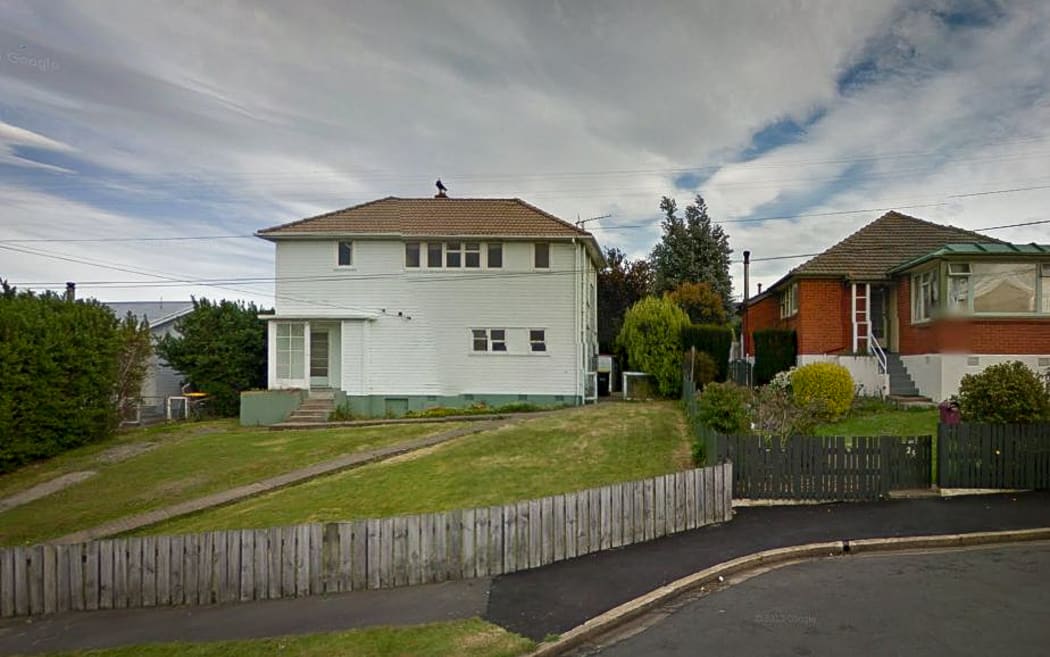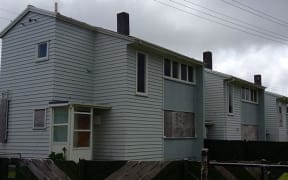The Fire Service and the Salvation Army have backed Housing New Zealand's decision not to reinstall a fire escape ladder at a Dunedin home, despite protest from its tenant.
Jodee Vince said the ladders were taken off while her Pine Hill home was being painted last month, but were never put back on.

Jodee Vince's Dunedin state house. Photo: Supplied
Housing New Zealand said the ladder was a safety hazard, and it had satisfied fire safety by installing smoke alarms.
"I was told that we were to just jump out the window as it would be better having a broke leg than being burnt," said Ms Vince.
She said those comments left her devastated.
"I've had back surgery in March, which is pretty major, and if I was to jump out my window I'd be in a wheelchair for the rest of my life."
Labour Dunedin North MP David Clark said Housing New Zealand was cutting costs and putting the lives of tenants in danger.
"If it wasn't such a serious matter, it would be laughable. Smoke alarms might alert someone to a fire, but you cannot climb down a smoke alarm to safety," he said.
But the Fire Service said Housing New Zealand was right in saying smoke alarms were better protection for homes.
Fire Risk Management National Advisor Todd O'Donoghue said while it was always preferable to keep existing safety means in place, if smoke alarms were installed throughout, then the house was maximally protected.
"People can become overcome by smoke in a matter of seconds, so it's most important that they have absolute early warning of the fire," he said.
"With correctly installed smoke alarms, as long as they're maintained and operating correctly, in most cases in two storey houses she'll have time to escape, even down the internal stairway."
Mr O'Donoghue said in some instances, fire escape ladders could become safety hazards if not well designed.
Independent Property Managers Association president Martin Evans said several properties he managed needed escape ladders by law, but that law did not apply to stand alone homes.
"The ones that mainly have the requirements are when there's multiple flats in a house that's been converted into say, three of four flats, so it's not one home."
Salvation Army social policy analyst Alan Johnson said many state houses dated back to the 1950s and would have fire escape structures that were no longer necessary or safe.
"You've got to sometimes be fairly nimble to be able to crawl out of the window and down a ladder, particularly at night and in your pyjamas, and it's not a particularly useful way for children," he said.
"While it was an idea in the 50s, I'm doubtful it's much of an idea today."
He said the advice Ms Vince said she received from Housing New Zealand about jumping out of her window might be flippant, but it was true.
"One of the things, of course, that kills people in fires is the smoke," he said.
"Having an alarm that's going to wake you up is probably a better way of saving lives, even if you do have to jump out of the window, than having a fire escape that you're not actually gonna get to use, because you die in the smoke."
A spokesperson for Housing New Zealand said he was looking into whether that advice was in fact given to Ms Vince, and that if it had been, it was totally inappropriate.



